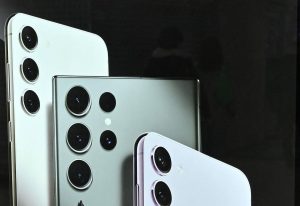Co-founder & CEO at Abode. Leading the team on our mission to modernize the way companies engage and retain Gen Z talent.
According to a recent poll, 74% of managers say Gen Z is the most challenging generation to work with. It seems as though every week, a new article is published where managers share reasons for their inability to cooperate with Gen Z, including worries about their inadequate productivity and output, as well as the perception that younger workers are quick to feel offended or, “they like to challenge you.”
I can acknowledge the potential challenges of integrating a new generation into the workforce, but as a member of Gen Z myself, I can confidently say this narrative is far from the truth. Gen Z is a highly adaptable generation. We have grown up in a world of constant change and disruption—from experiencing the rise of social media to attending school online for multiple years. In my view, the problem is not with our generation; it’s with outdated management styles.
Here are some common misconceptions about Gen Z in the workplace.
Myth No. 1: Gen Z lacks discipline.
One of the biggest criticisms of Gen Z is that we lack discipline and a strong work ethic. But many of us have grown up in highly competitive environments, where we had to juggle multiple extracurricular activities and academic demands. This has taught us how to manage our time effectively and work efficiently.
Furthermore, we understand the importance of hard work and are willing to put in the effort to succeed as long as we have structure and guidance to help us. Many of us are highly motivated and focused on achieving our goals, whether that means starting our own businesses or excelling in our current roles.
In an interview with Gen Z entrepreneur Charu Thomas, the Wall Street Journal notes, “She had just spent much of the night in the office to oversee a Fortune 500 client’s software deployment, she said, then attended a 9 a.m. staff meeting still in the T-shirt she’d worn the day before.” She knows all too well what discipline and a strong work ethic bring to today’s business world.
Myth No. 2: Gen Z workers support age bias.
It’s important to note that Gen Z is the most diverse generation yet. We are likely to value diversity, equity and inclusion in our personal and professional lives: One survey found that 83% of Gen Z candidates think a company’s commitment to diversity and inclusion is important. This means that we can help to challenge and overcome systemic biases in the workplace.
Myth No. 3: Gen Z is entitled.
Another misconception about Gen Z is that we are entitled and demand instant gratification. While it’s true that we value work-life balance and seek purpose in our careers, this does not mean we expect everything to be handed to us on a silver platter. Many of us are willing to work harder and longer hours if we feel that our work is meaningful and contributes to a greater cause.
This means employers can’t just slap their mission and values on the wall and think that’s enough. These things need to be intertwined into the daily work so that Gen Z knows why they are doing the work they’re being asked to do. That’s the key. When Gen Z understands why they are working on something and the impact it brings to the broader company, then they can fully buy in.
One of the best examples I’ve seen of this recently is a Slack channel where every time someone witnessed their peers living out one of the company’s core values, they would share it. This reinforces the broader purpose of why everyone is showing up to work every day and the big vision of what the company is trying to achieve. It also clearly illustrates how individuals contribute to that vision, helping them find purpose at work.
Myth No. 4: Gen Z is difficult to manage.
The poll mentioned earlier suggests Gen Z is the most difficult generation to manage. However, I’ve noticed many managers are not adapting to changing workplace environments. Gen Z has grown up in a highly digital and interconnected world, where we are used to constant feedback and collaboration. This means we thrive in environments that are flexible and allow for open communication. Managers who fail to recognize this risk losing out on the valuable contributions Gen Z can make to their organization.
I suggest managers explain their thought processes behind each task they assign to Gen Z employees. For everyone—but this group especially—it’s generally effective to provide more context about the work you’re asking someone to do, explain why you’re asking them to do it and illustrate the potential impact. Obviously, this level of detail can be scaled back once you determine the optimal balance for your specific employees, but over-explaining is an easy place to start. True collaboration and productivity stem from respect, and respect is rooted in open, transparent communication.
How can leaders adapt to changing workplaces?
The answer begins with understanding what Gen Z truly values at work: transparent communication, purposeful work and a path for growth within their organization.
Communication and the creation of meaningful work are intertwined. By being transparent and articulating the reasons behind their work, leaders can help Gen Z understand their work’s purpose. This openness helps with setting clear expectations and holding each other accountable.
This level of openness will also encourage Gen Z to reciprocate the same transparency, which will help you understand their goals and work expectations better. Most employees aim to grow and provide more value, so providing space for Gen Z to share their aspirations will allow you to guide them effectively.
However, I’ve found the key to gaining respect as a manager is to act on what employees share with you. If they wish for a specific career path, assist them in finding the right mentor. If they wish to learn a new skill, connect them with a competent teacher. If they aspire to become a leader, offer opportunities to lead in smaller ways.
The bottom line is that Gen Z simply has different expectations and preferences when it comes to the workplace. Instead of blaming this generation for workplace issues, let’s focus on devising solutions that are mutually beneficial. As the future of the workforce, Gen Z has much to offer, and it’s up to employers to harness this potential.
Forbes Business Council is the foremost growth and networking organization for business owners and leaders. Do I qualify?
Read the full article here










